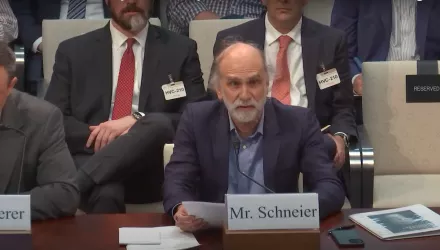United States
Preview
"Although not universally acknowledged, the US commercial privacy regime is arguably the oldest, most robust, well developed and effective in the world. The US privacy system has a relatively flexible and non-prescriptive nature, relying more on post hoc government enforcement and private litigation, and on the corresponding deterrent value of such enforcement and litigation, than on detailed prohibitions and rules. With certain notable exceptions, the US system does not apply a ‘precautionary principle’ to protect privacy, but rather allows injured parties (and government agencies) to bring legal action to recover damages for, or enjoin a party from, ‘unfair or deceptive’ business practices."
Mohan, Vivek. “The Privacy, Data Protection and Cybersecurity Law Review.” The Law Reviews, November 2015
The full text of this publication is available via The Law Reviews.




